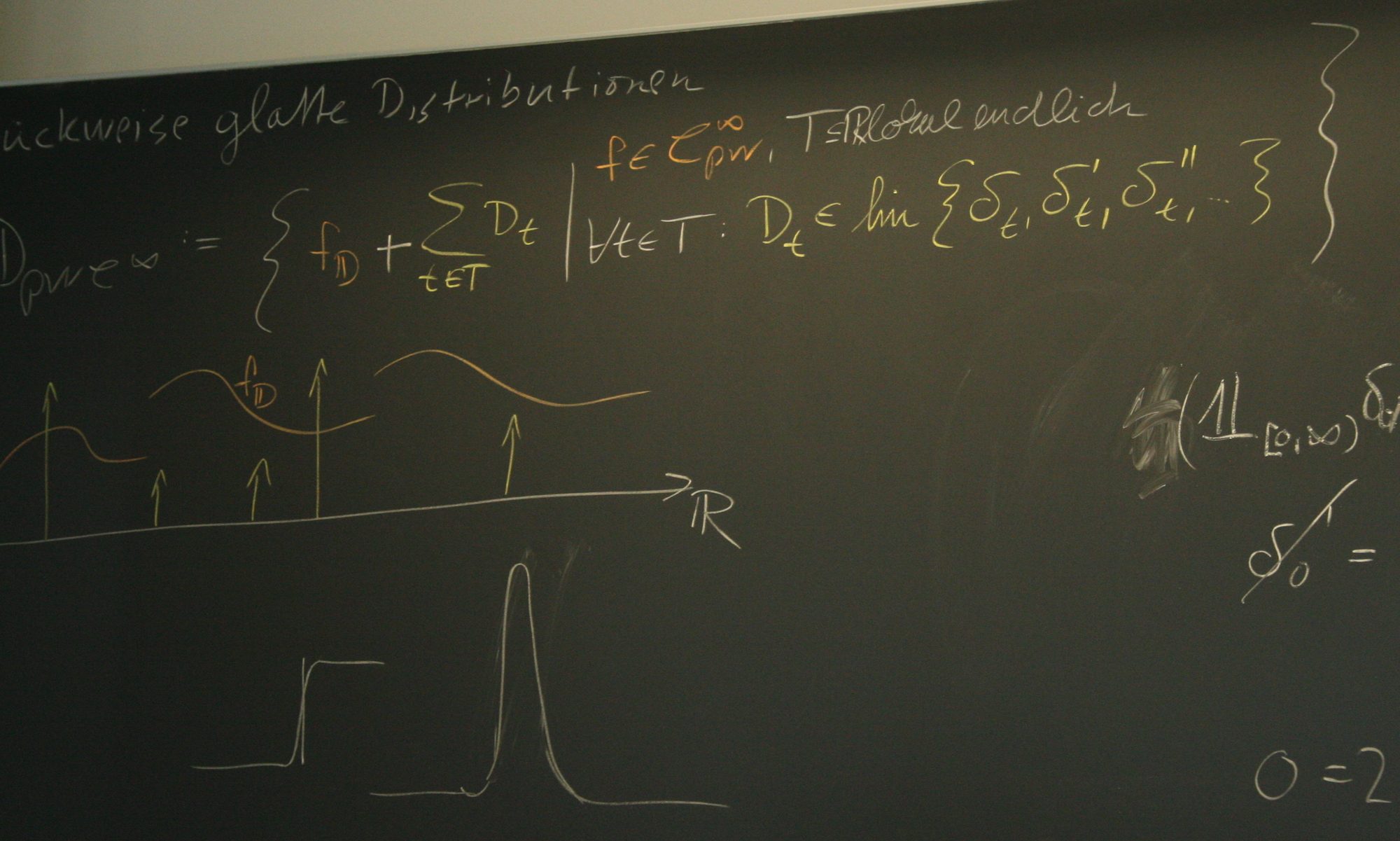Lee, Jin Gyu; Berger, Thomas; Trenn, Stephan; Shim, Hyungbo Utility of edge-wise funnel coupling for asymptotically solving distributed consensus optimization Proceedings Article In: Proc. European Control Conference (ECC 2020), pp. 911-916, Saint Petersburg, Russia, 2020. @inproceedings{LeeBerg20,
title = {Utility of edge-wise funnel coupling for asymptotically solving distributed consensus optimization},
author = {Jin Gyu Lee and Thomas Berger and Stephan Trenn and Hyungbo Shim},
url = {https://stephantrenn.net/wp-content/uploads/2020/02/Preprint-LBTS200204.pdf, Preprint},
doi = {10.23919/ECC51009.2020.9143983},
year = {2020},
date = {2020-05-14},
booktitle = {Proc. European Control Conference (ECC 2020)},
pages = {911-916},
address = {Saint Petersburg, Russia},
abstract = {A new approach to distributed consensus optimization is studied in this paper. The cost function to be minimized is a sum of local cost functions which are not necessarily convex as long as their sum is convex. This benefit is obtained from a recent observation that, with a large gain in the diffusive coupling, heterogeneous multi-agent systems behave like a single dynamical system whose vector field is simply the average of all agents' vector fields. However, design of the large coupling gain requires global information such as network structure and individual agent dynamics. In this paper, we employ a nonlinear time-varying coupling of diffusive type, which we call `edge-wise funnel coupling.' This idea is borrowed from adaptive control, which enables decentralized design of distributed optimizers without knowledge of global information. Remarkably, without a common internal model, each agent achieves asymptotic consensus to the optimal solution of the global cost. We illustrate this result by a network that asymptotically finds the least-squares solution of a linear equation in a distributed manner.},
keywords = {},
pubstate = {published},
tppubtype = {inproceedings}
}
A new approach to distributed consensus optimization is studied in this paper. The cost function to be minimized is a sum of local cost functions which are not necessarily convex as long as their sum is convex. This benefit is obtained from a recent observation that, with a large gain in the diffusive coupling, heterogeneous multi-agent systems behave like a single dynamical system whose vector field is simply the average of all agents' vector fields. However, design of the large coupling gain requires global information such as network structure and individual agent dynamics. In this paper, we employ a nonlinear time-varying coupling of diffusive type, which we call `edge-wise funnel coupling.' This idea is borrowed from adaptive control, which enables decentralized design of distributed optimizers without knowledge of global information. Remarkably, without a common internal model, each agent achieves asymptotic consensus to the optimal solution of the global cost. We illustrate this result by a network that asymptotically finds the least-squares solution of a linear equation in a distributed manner. |
Lee, Jin Gyu; Trenn, Stephan Asymptotic tracking via funnel control Proceedings Article In: Proc. 58th IEEE Conf. Decision Control (CDC) 2019, pp. 4228-4233, Nice, France, 2019. @inproceedings{LeeTren19,
title = {Asymptotic tracking via funnel control},
author = {Jin Gyu Lee and Stephan Trenn},
url = {https://stephantrenn.net/wp-content/uploads/2019/03/Preprint-LT190910.pdf, Preprint},
doi = {10.1109/CDC40024.2019.9030274},
year = {2019},
date = {2019-12-13},
booktitle = {Proc. 58th IEEE Conf. Decision Control (CDC) 2019},
pages = {4228-4233},
address = {Nice, France},
abstract = {Funnel control is a powerful and simple method to solve the output tracking problem without the need of a good system model, without identification and without knowledge how the reference signal is produced, but transient behavior as well as arbitrary good accuracy can be guaranteed. Until recently, it was believed that the price to pay for these very nice properties is that only practical tracking and not asymptotic tracking can be achieved. Surprisingly, this is not true! We will prove that funnel control – without any further assumptions – can achieve asymptotic tracking.},
keywords = {},
pubstate = {published},
tppubtype = {inproceedings}
}
Funnel control is a powerful and simple method to solve the output tracking problem without the need of a good system model, without identification and without knowledge how the reference signal is produced, but transient behavior as well as arbitrary good accuracy can be guaranteed. Until recently, it was believed that the price to pay for these very nice properties is that only practical tracking and not asymptotic tracking can be achieved. Surprisingly, this is not true! We will prove that funnel control – without any further assumptions – can achieve asymptotic tracking. |
Trenn, Stephan; Unger, Benjamin Delay regularity of differential-algebraic equations Proceedings Article In: Proc. 58th IEEE Conf. Decision Control (CDC) 2019, pp. 989-994, Nice, France, 2019. @inproceedings{TrenUnge19,
title = {Delay regularity of differential-algebraic equations},
author = {Stephan Trenn and Benjamin Unger},
url = {https://stephantrenn.net/wp-content/uploads/2019/03/Preprint-TU190910.pdf, Preprint},
doi = {10.1109/CDC40024.2019.9030146},
year = {2019},
date = {2019-12-12},
booktitle = {Proc. 58th IEEE Conf. Decision Control (CDC) 2019},
pages = {989-994},
address = {Nice, France},
abstract = {We study linear time-invariant delay differential-algebraic equations (DDAEs). Such equations can arise if a feedback controller is applied to a descriptor system and the controller requires some time to measure the state and to compute the feedback resulting in the time-delay. We present an existence and uniqueness result for DDAEs within the space of piecewise-smooth distributions and an algorithm to determine whether a DDAE is delay-regular.},
keywords = {},
pubstate = {published},
tppubtype = {inproceedings}
}
We study linear time-invariant delay differential-algebraic equations (DDAEs). Such equations can arise if a feedback controller is applied to a descriptor system and the controller requires some time to measure the state and to compute the feedback resulting in the time-delay. We present an existence and uniqueness result for DDAEs within the space of piecewise-smooth distributions and an algorithm to determine whether a DDAE is delay-regular. |
Anh, Pham Ky; Linh, Pham Thi; Thuan, Do Duc; Trenn, Stephan The one-step-map for switched singular systems in discrete-time Proceedings Article In: Proc. 58th IEEE Conf. Decision Control (CDC) 2019, pp. 605-610, Nice, France, 2019. @inproceedings{AnhLinh19,
title = {The one-step-map for switched singular systems in discrete-time},
author = {Pham Ky Anh and Pham Thi Linh and Do Duc Thuan and Stephan Trenn},
url = {https://stephantrenn.net/wp-content/uploads/2019/03/Preprint-ALTT190910.pdf, Preprint},
doi = {10.1109/CDC40024.2019.9030154},
year = {2019},
date = {2019-12-11},
urldate = {2019-12-11},
booktitle = {Proc. 58th IEEE Conf. Decision Control (CDC) 2019},
pages = {605-610},
address = {Nice, France},
abstract = {We study switched singular systems in discrete time and first highlight that in contrast to continuous time regularity of the corresponding matrix pairs is not sufficient to ensure a solution behavior which is causal with respect to the switching signal. With a suitable index-1 assumption for the whole switched system, we are able to define a one-step- map which can be used to provide explicit solution formulas for general switching signals.},
keywords = {},
pubstate = {published},
tppubtype = {inproceedings}
}
We study switched singular systems in discrete time and first highlight that in contrast to continuous time regularity of the corresponding matrix pairs is not sufficient to ensure a solution behavior which is causal with respect to the switching signal. With a suitable index-1 assumption for the whole switched system, we are able to define a one-step- map which can be used to provide explicit solution formulas for general switching signals. |

